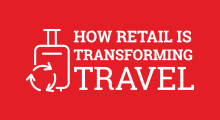Article
JET AIRWAYS : Change in IATA Agency Comissions*
effective 16 April 2015
This is to inform you that effective 16 April 2015 Jet Airways have some change of agency commission on international route as follows. Read
Related Articles
-
Abacus voted ‘Best New Technology’ for the 2015 China Travel & Meetings Industry Awards
SHANGHAI, May 8th, 2015 – Abacus, the Asia Pacific region’s leading travel solutions provider was voted the ‘Best New Technology’ in its category for the prestigious 2015 China Travel & Meetings Industry Awards, hosted in Shanghai on May 6th. TravelWeekly China readers credited the technology company’s pioneering mainland team for their ‘most outstanding product innovation and R&D’ with a ‘first-class product’ developed to achieve ‘competitive advantage’. Abacus’s treatment of industry partners was another component in the selection criteria. This is the eighth consecutive year in which Abacus has received the accolade and follows two decades of investment in travel agency solutions customised for the China market. Peter Li, General Manager for Abacus China received the award from Irene Chua, Travel Weekly China Group Publisher at the glittering event hosted by TravelWeekly China at the Ritz-Carlton, Shanghai. “This is a reflection of the commitment of our Abacus team to China’s travel agent community. We are working hard to provide the complementary technologies that drive greater productivity while also increasing our agents’ access to new content and markets,” said Li. “We are very appreciative of the support shown by subscribers to TravelWeekly China. Thank you all for an unforgettable night.” For more information, contact Abacus at www.abacuscn.com or call the toll-free Customer Support at 800-810-0390 (Mon-Sun, … READ MORE
-
Abacus FareX subscribed airlines stand to win fabulous prizes by filing eligible fares. Join now!
-

Happy New Year 2019
Happy New Year! Please be informed that our office will be closed on Tuesday, 1 January 2019 and for Monday, 31 December 2018, Our Customer Service operating hours will be changed from 08.00 AM – 14.00 PM. We will reopen on Wednesday, 2 January 2019. Thank you for your kind attention and happy holiday! Best Regards, Sabre Travel Network Indonesia Customer support after office hours HP : 0816920832 or 0812862323 Email : helpdesk@sabretn.co.id, technical@sabretn.co.id, marketing@sabretn.co.id, Electra Indonesia … READ MORE
-

Winners For Hotels Q3 Promotion Announced
The Hotels Quarterly Promotion (Q3) featuring hotel properties from Indonesia, Korea, Malaysia, Philippines, Taiwan and USA ended on 30 September 2015. Sabre-connected travel agents who made materialised bookings during the promotional period qualified for themselves a chance to win a complimentary hotel stay with breakfast for two. Click here to see if you are one of the lucky winners. Congratulations to … READ MORE
-

The travel retail revolution and the rise of the travel consultant
BY CHRIS HENZ ON 26 MAY 2016 There can be too much of a good thing. The revolution in travel retail has caused disruption across the industry and, more often than not, it is being led by the empowered traveler. An overabundance of travel information and booking options available online was initially viewed as a threat to traditional travel consultants, but it ended up creating a lot of noise — and that noise has proven to be a boon instead. Read … READ MORE
-

SABRE PRESENTS A GLOBAL VISION FOR THE ASIA PACIFIC TRAVEL COMMUNITY AS ABACUS REBRANDS
SINGAPORE, November 2, 2015 – Sabre Corporation (NASDAQ: SABR), the leading technology provider to the global travel industry has announced a rebrand of all its acquired Abacus assets in Asia Pacific, effective today. Over 100 wholly owned and affiliated offices across the region will now operate as Sabre, with travel agency and supplier customers engaging with their local teams at Sabre Travel Network Asia Pacific and via an expanded corporate domain at www.sabre.com/apac. The rebrand reflects Sabre’s aim of connecting its entire travel community so that Asia Pacific agents can shop the world’s largest marketplace for travel, while suppliers gain access to a global distribution channel of over 425,000 on and offline wholesale, corporate and leisure travel outlets. “The rebrand recognizes the global potential of Asia Pacific’s evolving travel businesses, especially those focused on the opportunities online,” said Roshan Mendis, senior vice president of Sabre Travel Network Asia Pacific. “We want every travel agent and regional supplier to readily access our global and local software, data, mobile and distribution services, to enjoy the benefit of one unified and market-aligned global Sabre brand.” From today, www.abacus.com.sg visitors will transfer to www.sabre.com/apac to discover more about the global travel technology leader and its presence, support and investment in the Asia Pacific region. “For our customers and prospects, the message is that Sabre is the partner of choice for faster shared innovation and accelerated growth. We will help all our Asia Pacific customers to compete in new markets and win,” added Mendis. Today’s brand change also coincides with Sabre’s acquisition of a third national marketing company, based in Malaysia to follow Singapore and Hong Kong. Abacus Distribution Systems (Malaysia) Sdn. Bhd is now a wholly owned, integral part of one Sabre. For more, visit: http://www.sabre.com/locations/apac/releases … READ MORE
-

Season’s Greetings from Sabre Traven Network Indonesia!
Merry Chrismast! Please be informed that our office will be closed on Monday, 25 December 2017, and for Tuesday, 26 December 2017 Our Customer Service operating hours will be changed from 08.30 AM – 13.30 PM. Thank you for your kind attention and happy holiday! Best Regards Sabre Travel Network Indonesia Customer support after office hours HP : 0816920832 or 0812862323 Email : helpdesk@sabretn.co.id, technical@sabretn.co.id, … READ MORE
-

Useful Tips on Automated Exchanges
Did you know… For every successful ticket exchanged through Automated Exchanges, there will be an ‘Automated Reissue’ tag appended. What this means is that this exchanged ticket is guaranteed by Sabre under the Fare Guarantee Policy! Maximize your free trial by performing your first exchange through Automated Exchanges today! Should you need help, please contact your local Sabre … READ MORE